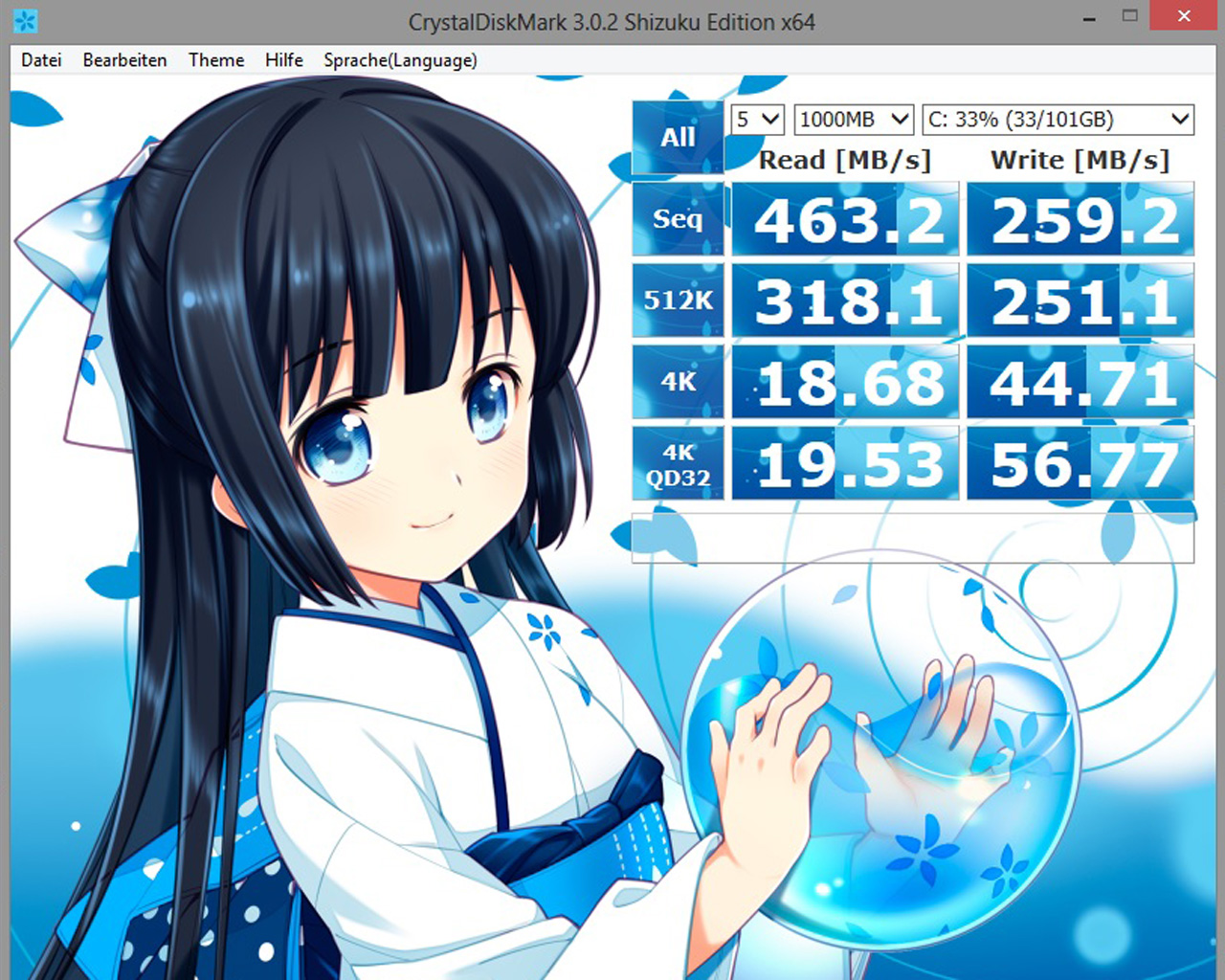

The output will include the parameters of the test, the name of the machine, the label of the disk and the IO metrics. All the results, both raw and processed, are written to disk for further analysis in XML/CSV format. Introducing DiskSpdAuto! DiskSpdAuto is a PowerShell script that executes a predefined set of IO tests on a disk or disks without any human intervention. This creates a great opportunity to write wrappers in PowerShell around DiskSpd to accomplish what your heart desires. One nice thing about DiskSpd is that it can output information in XML format, thus allowing you to load the results of the test in a structured manner. The concept is very similar to tools you would typically find in the *inx world (Bonnie++, IOzone, XDD, etc). DiskSpd is an open source project by Microsoft, which delivers a command-line utility to measure disk IO. Since the 2015 version 4, CrystalDiskMark changed and became a GUI layer on top of a recently released IO benchmarking tool, DiskSpd. Unfortunately further UI limitations, such as the inability to use a test file size outside of a short set list of values hinder the effectiveness of this tool in some scenarios. This limitation is partially addressed by using DiskMarkStream, which is a GUI app that can automate CrystalDiskMark. CrystalDiskMark is a wonderful tool, but being a GUI application it is unsuitable for using in an automated environment or when you need to test several disks with several sets of parameters without constant human intervention.
#DISKMARK VS PRO#
Samsung SSD 980 PRO - First PCIe 4.If you have followed my previous article titled IO Performance Benchmarking 101, you know that I am a big fan of using CrystalDiskMark for measuring disk IO throughput. Let’s look at some other benchmarks! Article Contents Random 4K performance was also excellent with ~85 MB/s read and ~192 MB/s write on both drives at a queue depth of 1. The smaller SSD 980 Pro 500GB model was able to finish the benchmark with seeds of 6784 MB/s read and 4874 MB/s write! The 1TB model is rated at 7000 MB/s read and 5000 MB/s write so we were just below the drives rated speeds.

CystalDiskMark:īenchmark Results: The Samsung SSD 980 Pro 1TB drive came in with scores of 6753 MB/s read and 4952 MB/s write on CrystalDiskMark 7. Note that CDM only supports Native Command Queuing (NCQ) with a queue depth of 32 (as noted) and shows the highest score of five runs. CrystalDiskMark 7.0.0 圆4ĬrystalDiskMark is a small benchmark utility for drives and enables rapid measurement of sequential and random read/write speeds. The write speed in ATTO Disk benchmark puts the Samsung SSD 980 Pro at least 1GB/s ahead of the nearest competitor, but at 128KB the read speeds are on par with other PCIe Gen 4.0 SSDs like the Corsair Force MP600 and the Sabrent Rocket PCIe 4.0 drives. The write speeds on both drives peaked at the I/O size of 128KB! The Samsung SSD 980 Pro 500GB topped out at 4.88 GB/s write and and 6.46 GB/s read. ATTO Disk Benchmark:īenchmark Results: On ATTO Disk Benchmark found that the Samsung SSD 980 Pro 1TB NVMe SSD reached 5.11 GB/s write and and 6.31 GB/s read at the standard queue depth of 4. The test was run with the default runs of 0.5KB through 64MB transfer sizes with the total length being 256MB. It measures raw transfer rates for both reads and writes and places the data into graphs that can be very easily interpreted. ATTO measures transfers across a specific volume length. ATTO is one of the oldest drive benchmarks still being used today and is still very relevant in the SSD world.


 0 kommentar(er)
0 kommentar(er)
